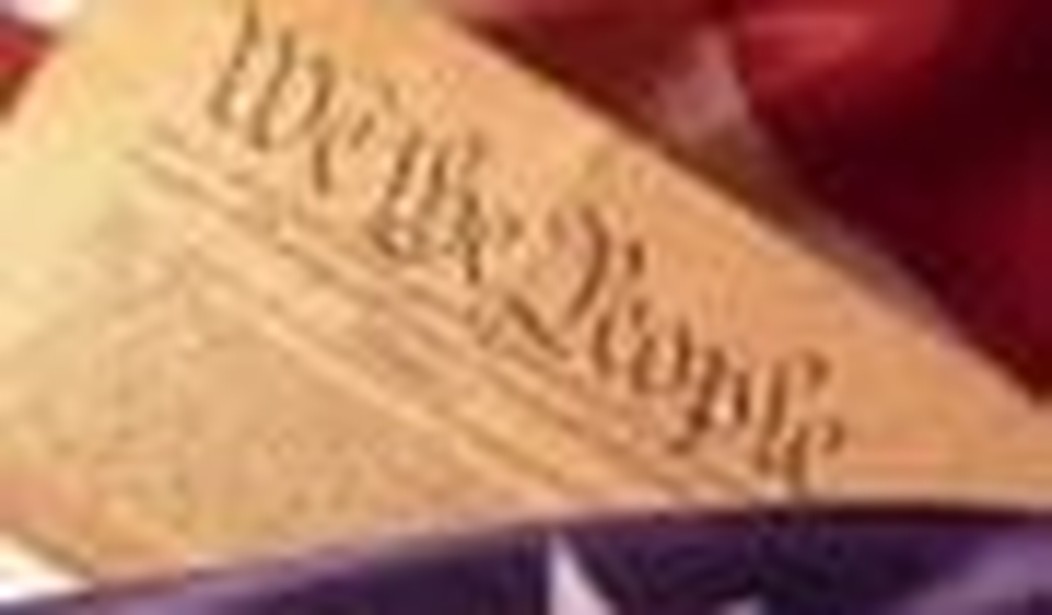Before the left began its determined assault on education in the 1960s, citizens in the United States were proud to be “Americans.” There was such a thing as an American culture and through freedom it bound citizens of this country together, even if imperfectly, regardless of their race, creed, or religion.
This culture rested largely on the ideals of Western civilization that had been passed down from generation to generation since America’s founding. But the stability gained from these ideals was lost as the left warred against the Founding Fathers and then, in the name of multiculturalism, splintered our once-unified nation into a thousand factions divided by race, creed, or religion.
In order to recover the American culture we’ve allowed radicals to attack and disperse, we are going to have to return to the Founders and the papers they left us over two centuries ago. And we must do this understanding that while government cannot save us, the great ideals on which the government of the United States rests can unite us and bind us together again.
President George Washington made this clear in his farewell address in 1796, when he spoke of the “unity of government which constitutes [us] one people.” He stressed that we were bound together as citizens “of a common country,” and that because our country united us in this fashion, it “has a right to … [our] affections.”
Washington literally loved his country because the country was foundational to the commonality he shared with his fellow citizens.
Thomas Jefferson’s Declaration of Independence teaches us these same lessons, but on an even deeper level by reminding us that we are all “created equal” and “endowed by [our] Creator with certain unalienable rights.” Jefferson was convinced that such creation is foundational to the ideals of equality and the possession of natural rights on which the emerging American government would stand. He also believed the endowments “by [our] Creator” bound the colonists together in pursuit of the freedom to which the “laws of nature and of nature’s God [entitled] them.”
In 1772, just four years before Jefferson wrote the Declaration, another Founding Father, Samuel Adams, used his leaflet The Rights of the Colonists to describe this common pursuit of freedom as “true liberty.” Drawing strongly on Enlightenment philosopher John Locke, Adams shared Jefferson’s conviction that our creation “entitles” us to pursue freedom, which Adams claimed is ours “by the eternal and immutable laws of God and nature.”
In describing the characteristics of government that are just and worthy of implementation, Adams wrote that “the grand end of civil government, from the very nature of its institution, is for the support, protection, and defense of [the] very rights” to which Jefferson had insisted we are entitled. Adams then summed up those rights as “Life, Liberty, and Property” — a summation that Jefferson rephrased as “Life, Liberty, and the Pursuit of Happiness.”
In 1787, the “true liberty” of which Adams wrote, represented by the rights which Jefferson expounded, was given a government that James Madison introduced with the words “We the People of the United States.” These opening words of the Constitution expressed the Founders’ view that “We” were bound together, if even imperfectly, under a government many of the Founders risked their “lives, [their] fortunes, and [their] sacred honor” to establish.
And if anyone supposes I’ve exaggerated the scope of Madison’s language in the opening phrase of the Constitution, just consider that later in the same sentence he expresses his hope that the government of the United States would “secure the Blessings of Liberty to [the founding generation] and [their] posterity.”
There you have it, folks. Although the left does its best to conceal it, the truth is that Americans from all walks of life hold in common a heritage founded on “true liberty” and drawn from the rights with which their Creator endowed them. These are the ties that bind, and they represent matters of far greater import than the color of my skin or the color of yours.
The quicker we get back to these truths, so clearly expressed in the documents the Founding Fathers left behind, the quicker we can recapture common ground and take pride in being “Americans” once more.








Join the conversation as a VIP Member